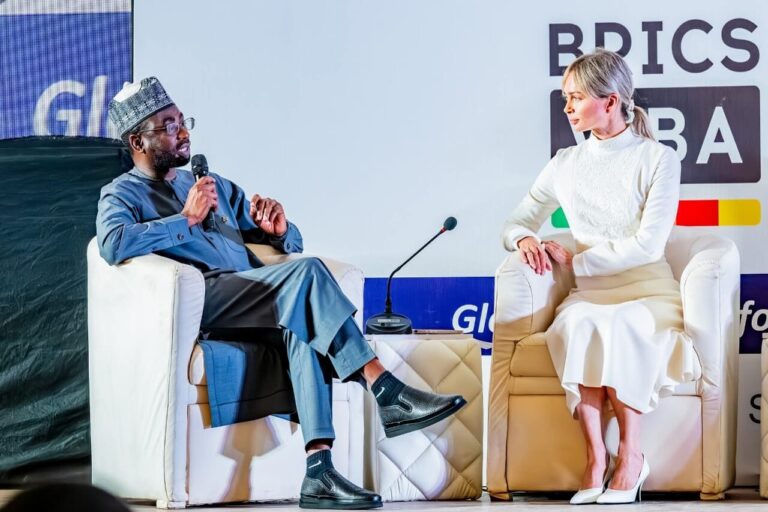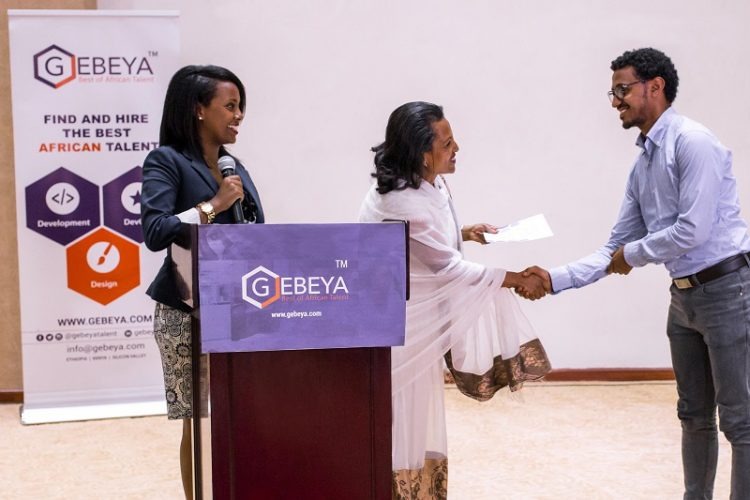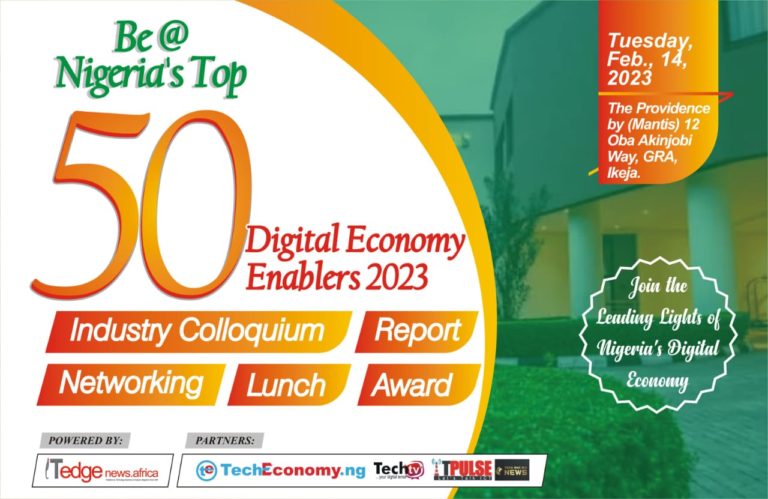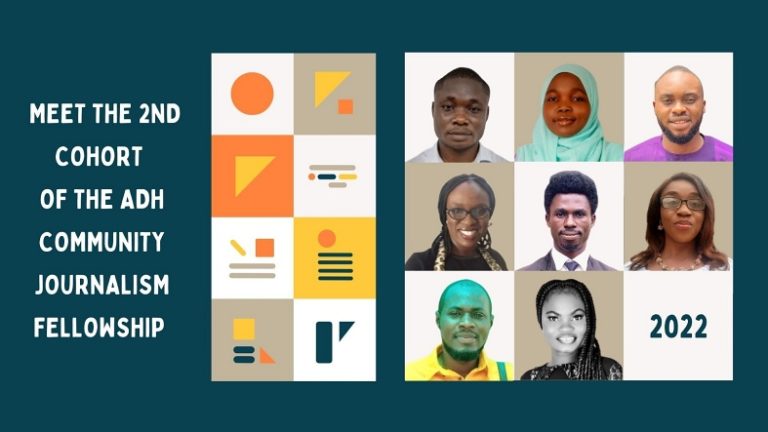Nigeria Raises $500m for Domestic Funding of Digital Economy

According to Dr. Bosun Tijani, Minister of Communications and Digital Economy, the federal government has successfully obtained a loan for a domestic funding scheme in the amount of $500 million.
He clarified that the main goal of this program is to promote entrepreneurship and innovation in the country’s digital sector.
The Minister said we have obtained access to about $500 million to launch our domestic funding project while speaking at an event arranged in his honor in partnership with the World Bank.
Tijani described the federal government’s plan for developing local funding capacities in Nigeria while making sure that it directly benefits legitimate Nigerian businesses. He also emphasized a collaboration on this project with the Bank of Industry (BOI).
He stressed the significance of supporting and championing Nigerian firms and that the goal of this effort is to make sure that the recipients are authentically Nigerian businesses.
His plan calls for bringing domestic funds home to support the expansion and development of indigenous enterprises. This is then expected to significantly contribute to the economic development of the country.
The Minister reassured the populace that the initial $500,000,000 allotted for domestic funding is just the first step. He made it clear that additional investors would be sought in order to expand the pool of funds available to help Nigerian innovators. The government’s goal, according to Tijani, is to use these monies to attract additional investment and increase chances for local business owners.
“Working with BOI to make sure we domicile that funding locally in Nigeria, working with firms that manage and invest in businesses to make sure that those businesses that will benefit are true, real Nigerian businesses,” he continued, “is part of my responsibilities.”
“And what we will observe is that the funding is already available locally and will grow in the next months. As these monies grow, we want to leverage them as well.
“So the government is not just going to put half a billion and that’s it,” one official said. “It can actually bring more investors to heart as we have more money more of our innovators can have access to resources.”
Shubham Chaudhuri, the World Bank’s Country Director for Nigeria, also spoke at the event and reaffirmed the organization’s ongoing commitment to reducing poverty, improving livelihoods, and creating employment opportunities for the country’s youth.
In order to realize these ambitions, Chaudhuri highlighted the revolutionary potential inherent in utilizing digital technology and identified two crucial areas of partnership with Nigeria.
He gave a press briefing outlining the critical position that a digital national identity system plays as the foundation of the digital revolution. He clarified that to enable the successful implementation and registration of digital national IDs for the whole Nigerian population, the World Bank works closely with the National Identity Management Commission.
The ambitious goal, according to the World Bank representative, is to provide digital national IDs by the middle of the following year to at least 148 million people of working age. This bold move is expected to bring substantial advancements toward accessibility and inclusivity for all.
“Our main mission here in Nigeria is to eradicate poverty, improve living conditions, and create jobs for all Nigerian youth,” he declared. The use of digital technologies for transformation is one of the areas we believe has the most potential. Now, having this digital national ID is the first step in doing that.
Therefore, one of the key partnerships we have is working with NIMC to ensure the registration rollout so that all 213 or 220 million Nigerians have a digital national ID, starting of course with everyone of working age and I think the target for that is at least 148 million people by the middle of next year.
He added that the absence of reliable internet connectivity might create a digital divide, thus the second part entails helping Nigeria lead the development of broadband infrastructure. As a result, their participation focuses on supporting favorable laws and policies that promote business investment in this area and the growth of fiber optic networks.
Working with states to decrease right of way fees and fiber is one strategy, for instance. “All that is like the foundations and real potential comes from once you have the national ID all the technologies that apps that can be built on the weather to bring services to people, to people where they get people access to finance that all of that needs skills,” he said. Cable operators have to pay more when they’re getting the land to ray the cable.






